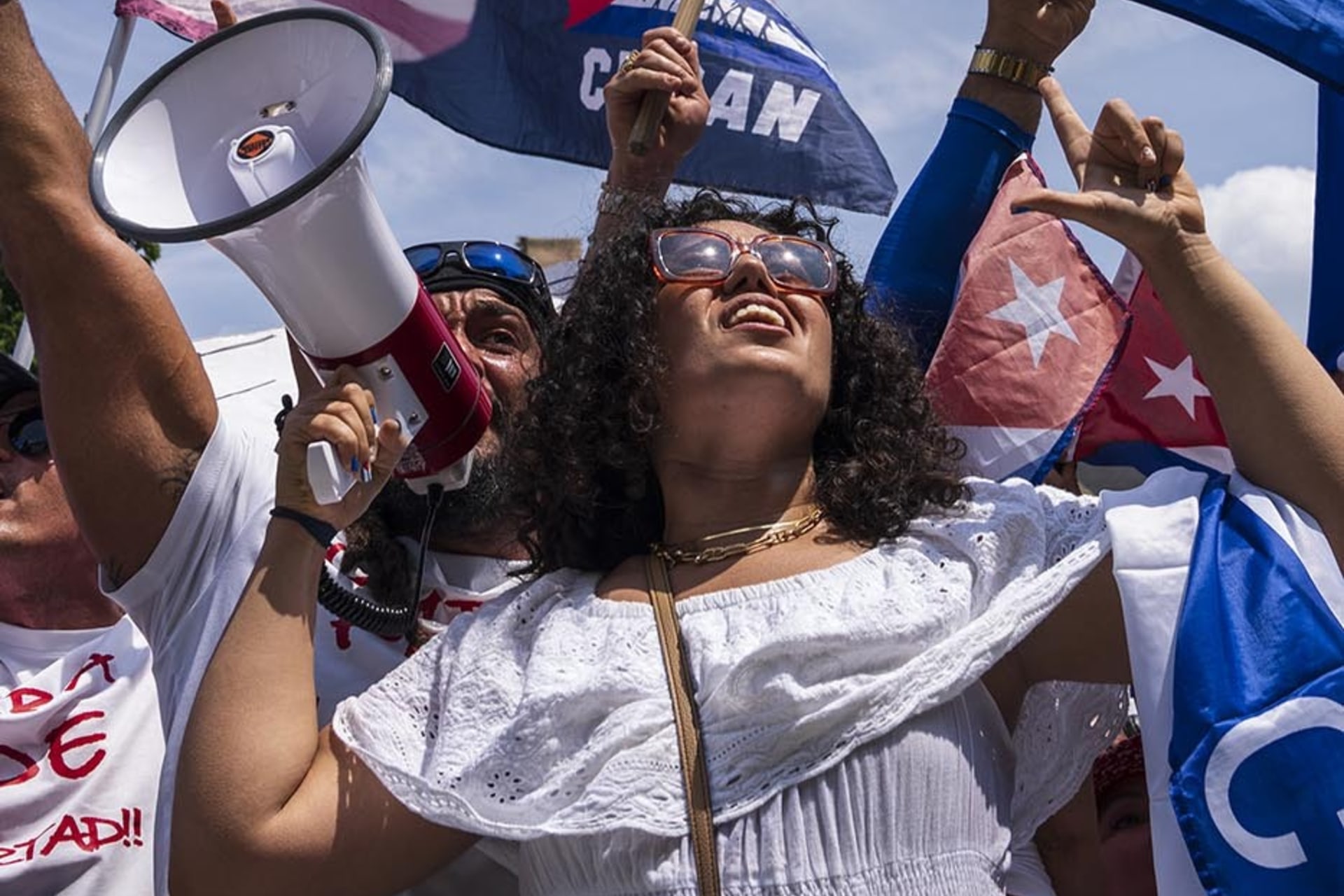Loose Nukes
Published
Updated
This publication is now archived.
What are “loose nukes”?
The term originally referred to poorly guarded nuclear weapons in the former Soviet Union that might tempt terrorists or criminals. Today, experts use the term to refer to nuclear weapons, materials, or know-how that could fall into the wrong hands. Areas of particular concern include the black market in uranium and plutonium, as well as the temptation for poorly paid former Soviet nuclear scientists to sell their skills to the highest bidder.
In which countries are loose nukes a problem?
Mainly in Russia. Before its collapse in 1991, the Soviet Union had more than 27,000 nuclear weapons and enough weapons-grade plutonium and uranium to triple that number. Since, severe economic distress, rampant crime, and widespread corruption in Russia and other former Soviet countries have fed concerns in the West about loose nukes, underpaid nuclear scientists, and the smuggling of nuclear materials. Security at Russia’s nuclear storage sites remains worrisome
The former Soviet republics of Ukraine, Belarus, and Kazakhstan—where the Soviets based many of their nuclear warheads—safely returned their Soviet nuclear weapons to post-communist Russia in the 1990s, but all three countries still have stockpiles of weapons-grade uranium and plutonium. Ukraine and Kazakhstan also have nuclear power plants the byproducts of which cannot be used to make a nuclear bomb but might tempt terrorists trying to make a “dirty bomb”—a regular explosive laced with lower-grade radioactive material.
Some experts also worry about Pakistan, a relatively recent nuclear power with untested security systems, dozens of nuclear weapons, and no shortage of Islamist militants. The United States recently offered to help Pakistan improve its nuclear security measures, an offer which Pakistan has tacitly accepted since November 2001.
Have any Russian nuclear weapons gone missing?
There have been no confirmed reports of missing or stolen former-Soviet nuclear weapons, but there is ample evidence of a significant black market in nuclear materials. The International Atomic Energy Agency (IAEA) has reported more than a hundred nuclear smuggling incidents since 1993, eighteen of which involved highly enriched uranium, the key ingredient in an atomic bomb and the most dangerous product on the nuclear black market.
Have terrorist organizations ever tried to obtain Russian nuclear weapons?
Yes. Russian authorities say that in the past three years alone they have broken up hundreds of nuclear-material smuggling deals. In October 2001, shortly after the World Trade Center attacks, a Russian nuclear official reported having foiled two separate incidents over the previous eight months in which terrorists had “staked out” a secret weapons storage site. In the 1990s, U.S. authorities discovered several al-Qaeda plots to obtain nuclear materials, and former CIA Director George Tenet told the Senate Select Committee on Intelligence that Osama bin Laden had sought to “acquire or develop a nuclear device.”
Could terrorists steal a Russian nuclear weapon?
It’s hard to say. Russian authorities say their nuclear weapons are under “safe and reliable” protection against a wide range of terrorist attacks. But Western analysts still worry that Russian security might be lax. And other Russian nuclear materials are less well-protected, including storage sites for tons of highly enriched uranium and plutonium.
How do governments protect their nuclear weapons?
The United States protects its nuclear weapons with barriers, guards, surveillance cameras, motion sensors, and background checks on personnel. Several other nuclear powers—though not all—take similar precautions. Russia ’s security measures are flimsier. Guards at nuclear weapons facilities have gone unpaid for months at a time, and even basic security arrangements such as fences, doors, and padlocks remain inadequate in many locations. Futhermore, while U.S. nuclear weapons are engineered with “built-in” security mechanisms, we know very little about what sort of built-in safeguards there may be on Russia’s or Pakistan’s nuclear arsenals to prevent unauthorized detonations.t





